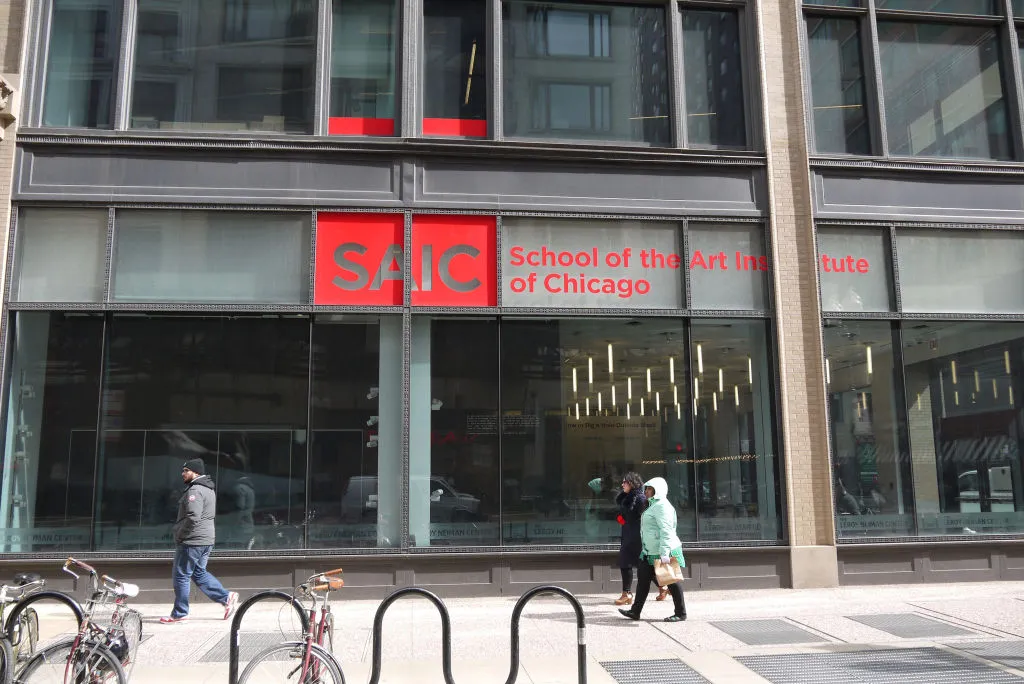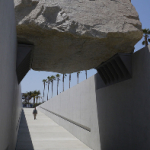
Students at the School of the Art Institute of Chicago organized a walkout on Thursday to protest Israel’s war in Gaza.
The walkout, which happened during class hours, began outside SAIC’s MacLean Center, the building that houses the school’s art history, critical studies, and journalism programs. Organized in part by the Students for Palestinian Liberation (SPL), the walkout saw protestors move up Michigan Avenue to a public park, evading conflict on SAIC’s campus.
Students, faculty, and employees at the school took part. One faculty member present on campus during the protests said that the walkout included around 200 people, though it is unclear how many of them were unaffiliated with SAIC.
A representative for SAIC told ARTnews that operations on campus were not disrupted and public police presence was minimal.
The walkout came two weeks after the one-year anniversary of the October 7 Hamas attack on Israeli civilians and the start of Israel’s subsequent war in Gaza. In response, many schools have been roiled by protests.
On Thursday, protesters held signs condemning financial support for the war in Gaza. Some referenced the Art Institute of Chicago, the school’s affiliated museum, which shares its board with SAIC. Those signs bore phrases such as “WHEN ISRAEL BOMBS, SAIC PROFITS” and “AIC STAFF SUPPORT SAIC STUDENTS.”
The Thursday walkout follows a widely publicized pro-Palestine protest at the school in May that led to the mass arrest of around 70 students. Afterward, a group of 40 museum staffers issued an open letter to museum president James Rondeau, expressing solidarity with the protesters. The letter called on the museum to end “financial support of the Palestinian genocide, direct or indirect.”
Following a class walkout held in November last year, the school’s administration sent an email internally to students alleging that the demonstration “disturbed the equilibrium,” according to a statement published that month on SAIC’s SPL instagram account.
A representative for SAIC said the administration supports the “right of students to express their beliefs,” generally, but that it disapproved of specific language used in the November demonstration. ARTnews has not independently review the email.

